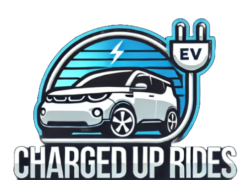Introduction
The growing interest in electric vehicles (EVs) has sparked a wave of DIY enthusiasts eager to convert traditional gasoline-powered cars into electric ones. DIY electric vehicle conversions not only promote sustainability but also provide an opportunity for hands-on learning and creativity. However, one of the most critical decisions in this process is selecting the right donor car. This blog will explore the top five donor cars for DIY EV conversions, highlighting their benefits and conversion potential.
Overview of DIY Electric Vehicle Conversions
DIY electric vehicle conversions involve replacing the internal combustion engine (ICE) of a conventional vehicle with an electric motor and battery system. This transformation allows you to repurpose an existing car while minimizing waste and contributing to a more sustainable future. Choosing the right donor car is essential, as it can significantly impact the ease of conversion, performance, and overall satisfaction with the finished product.
Importance of Choosing the Right Donor Car
Selecting a suitable donor car is crucial for several reasons:
- Compatibility with Electric Components: Not all vehicles are equally suited for electric conversion. The donor car must have enough space for batteries and electric components while being structurally sound.
- Weight and Size Considerations: The weight of the vehicle affects its performance and range. Lightweight cars are generally better candidates for conversion as they require less power to operate.
- Availability of Parts and Support: A donor car with readily available parts and a supportive community can make the conversion process smoother and more enjoyable.
Criteria for Selecting a Donor Car
When selecting a donor car for your DIY EV conversion, consider the following criteria:
Compatibility with Electric Components
Ensure that the car’s design allows for easy integration of an electric motor, battery pack, and necessary wiring. Vehicles with simple mechanical systems are often easier to convert.
Weight and Size Considerations
Lighter vehicles require less energy to move, improving efficiency and range. Additionally, consider the size of the vehicle to ensure adequate space for batteries without compromising passenger comfort.
Availability of Parts and Support
Research the availability of replacement parts, aftermarket support, and online communities dedicated to your chosen vehicle model. A strong support network can provide invaluable assistance during your conversion project.
Top 5 Donor Cars for DIY EV Conversions
Here are five excellent donor cars that stand out for their suitability in DIY EV conversions:
1. Volkswagen Beetle
Overview of Benefits: The iconic Volkswagen Beetle is known for its lightweight design and simple mechanics, making it an ideal candidate for conversion.
Conversion Potential and Popularity: The Beetle has a strong following among DIY enthusiasts. Its classic styling combined with modern electric performance makes it a popular choice for conversions.
2. Honda Civic
Reasons for Choosing the Civic: The Honda Civic is renowned for its reliability, fuel efficiency, and abundant aftermarket parts availability.
Performance and Efficiency Post-Conversion: After conversion, Civics can achieve impressive range and performance due to their lightweight construction and aerodynamic design, making them an excellent option for everyday driving.
3. Mazda MX-5 Miata
Lightweight Design Advantages: The Mazda MX-5 Miata is one of the lightest sports cars on the market, which translates to enhanced performance when converted to electric power.
Enthusiast Appeal and Customization Options: The Miata has a dedicated enthusiast base, providing ample resources for modifications. Its sporty nature makes it an exciting project for those looking to combine fun with eco-friendliness.
4. Mini Cooper
Compact Size and Retro Appeal: The Mini Cooper’s compact size makes it perfect for urban environments where space is limited. Its retro design adds character to any conversion project.
Ideal for City Driving and Efficiency: With its small footprint and nimble handling, a converted Mini Cooper can navigate city streets efficiently while offering an enjoyable driving experience.
5. Nissan Leaf
Advantages of Using Existing EV Components: As a factory-built electric vehicle, the Nissan Leaf provides an opportunity to repurpose existing EV components like motors and batteries into another project vehicle.
Cost-Effectiveness and Reliability: Utilizing Leaf components can significantly reduce costs while ensuring reliability since these parts are designed specifically for electric propulsion.
Additional Considerations for Donor Cars
When selecting your donor car, keep these additional factors in mind:
Condition of the Vehicle
Choose a donor car in good condition with minimal rust or damage. A well-maintained vehicle will make your conversion project easier and more successful.
Cost of Acquisition
Consider your budget when selecting a donor car. Look for affordable options within your price range while ensuring that they meet your criteria for compatibility and condition.
Ease of Conversion Process
Research how straightforward it is to convert your chosen vehicle type. Some models have extensive documentation available online, making them easier to work on than others.
Conclusion
Choosing the right donor car is a pivotal step in successfully converting a gasoline-powered vehicle into an electric one. The Volkswagen Beetle, Honda Civic, Mazda MX-5 Miata, Mini Cooper, and Nissan Leaf all offer unique advantages that cater to various preferences and needs in DIY EV conversions.
By considering compatibility with electric components, weight considerations, availability of parts, and overall condition when selecting your donor car, you can set yourself up for success in your DIY project. Embrace this opportunity to create something unique while contributing to sustainable transportation—your journey into electric mobility starts here!
